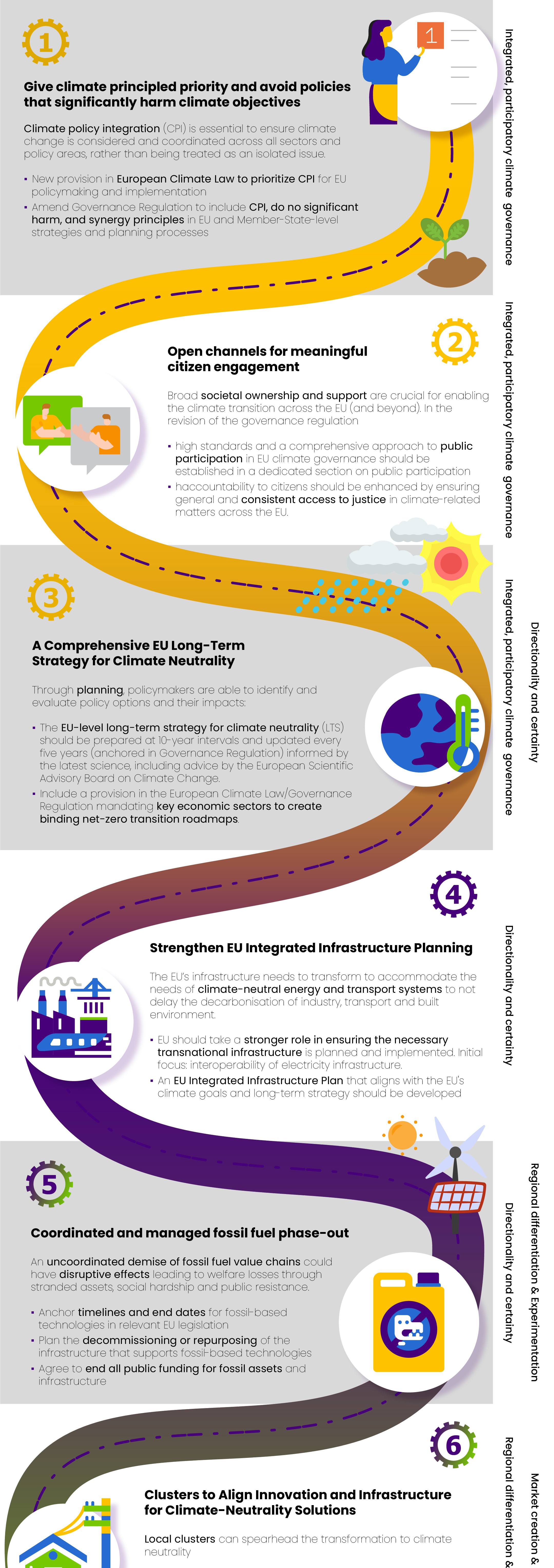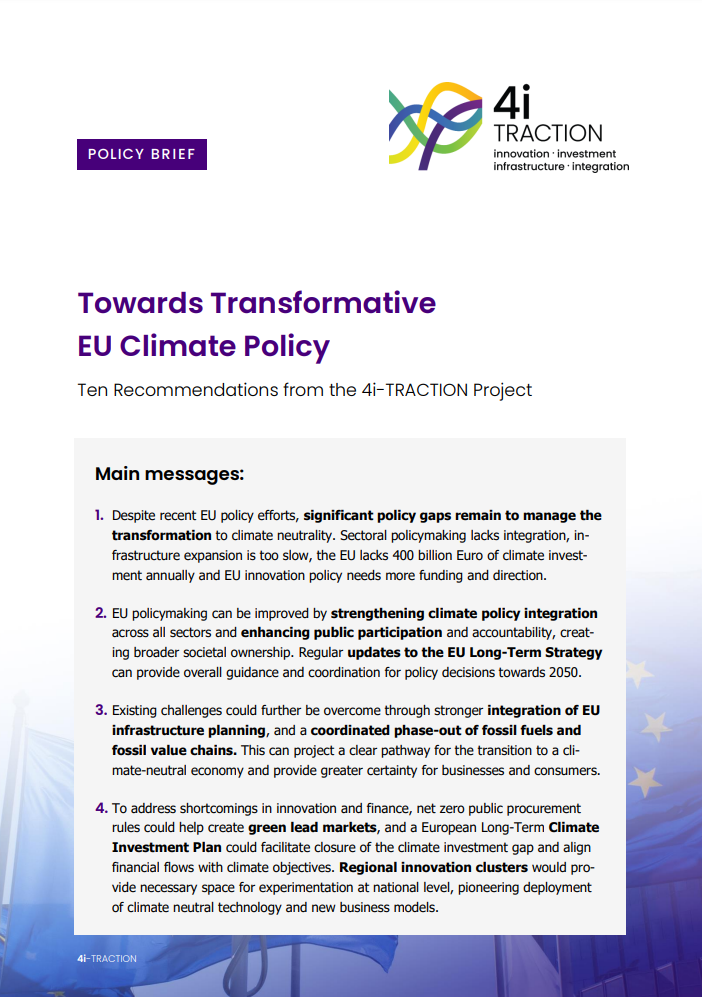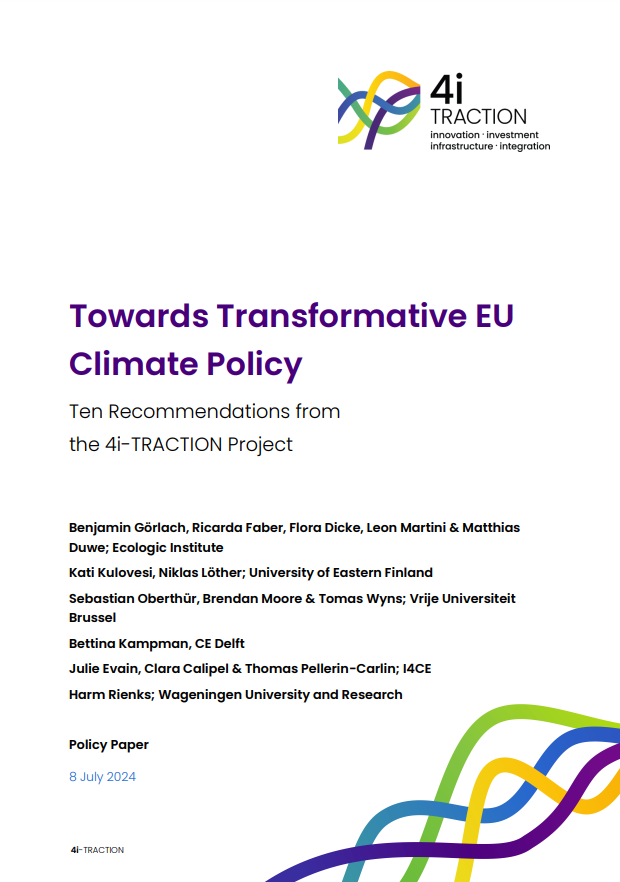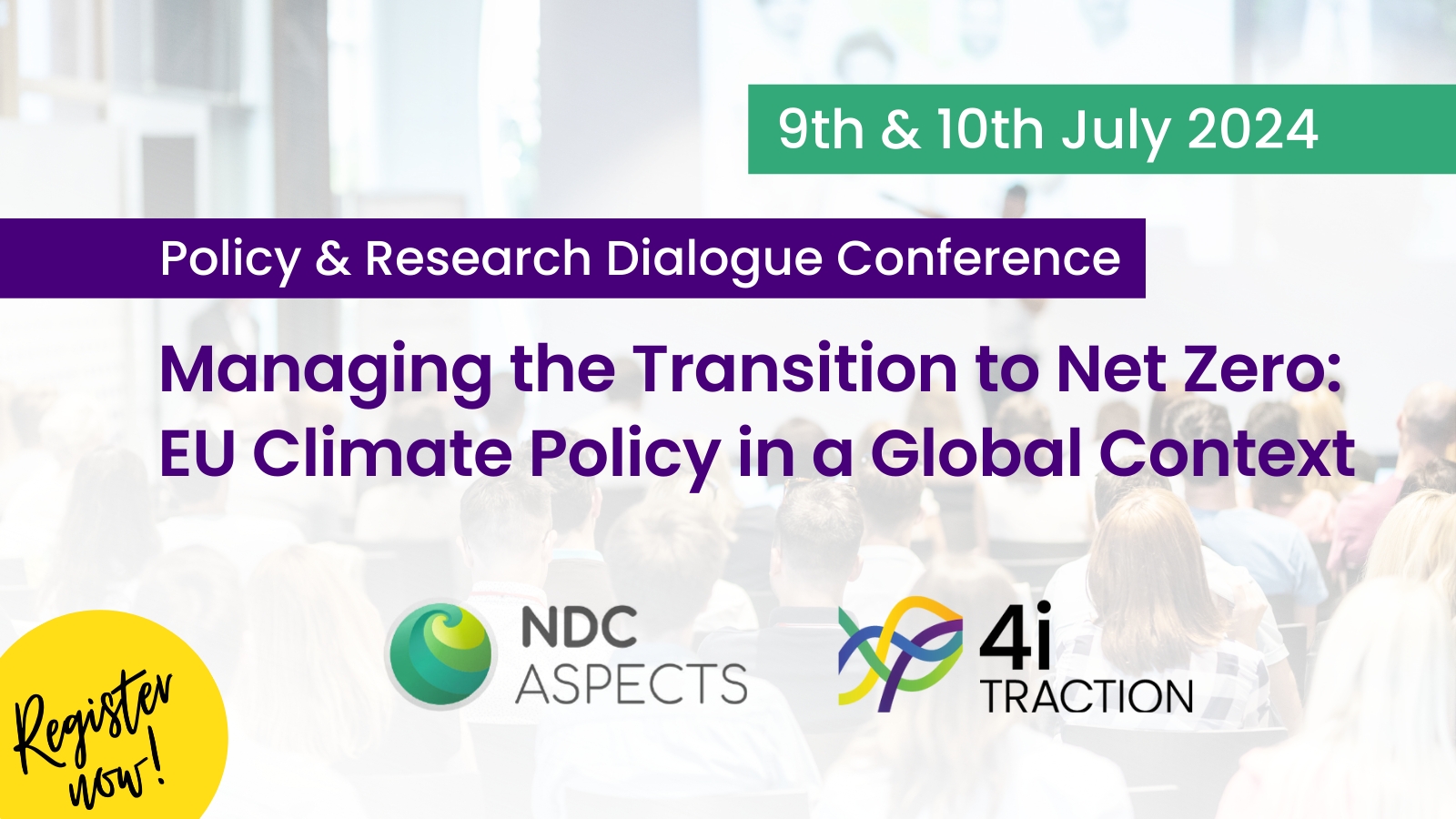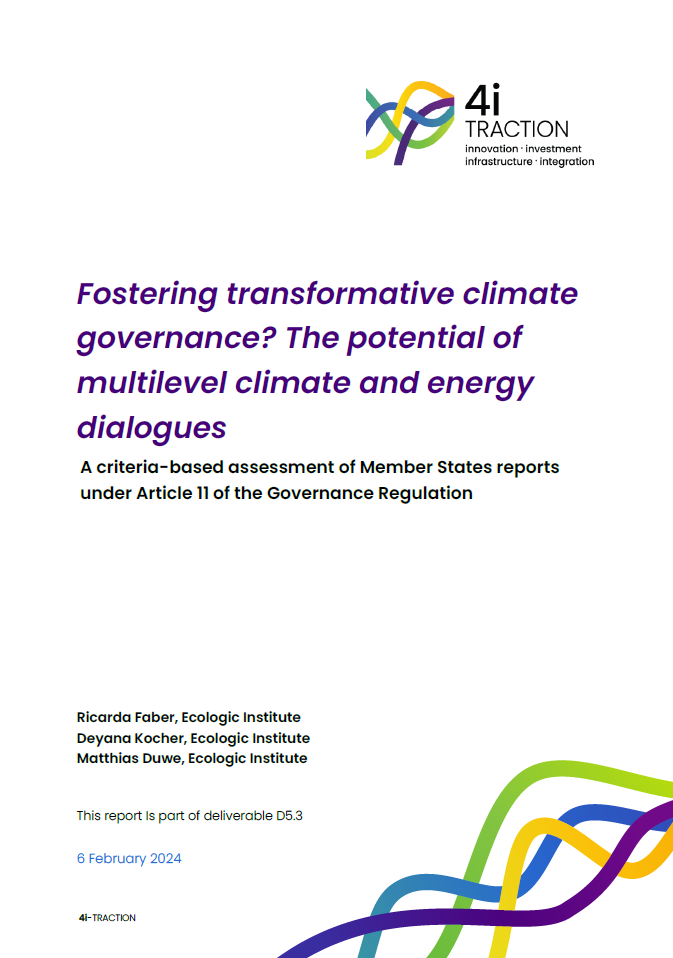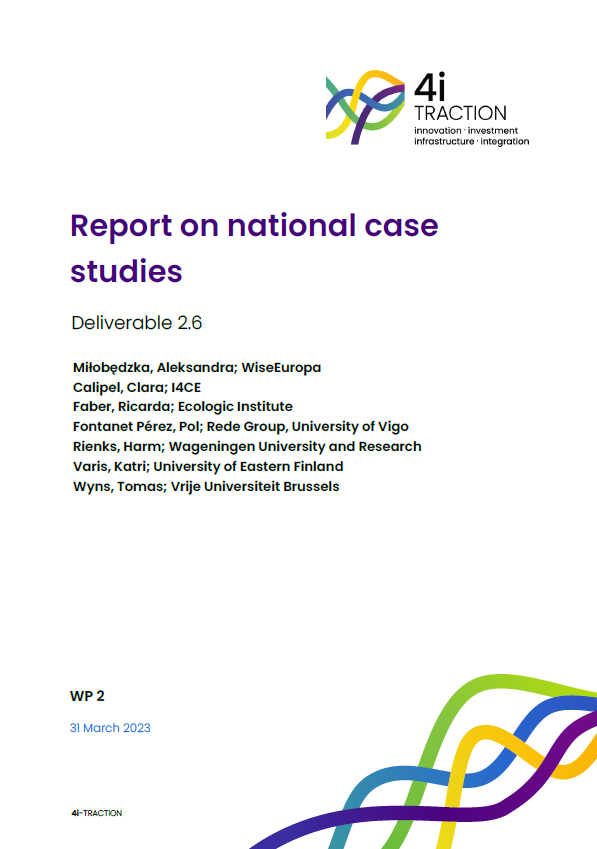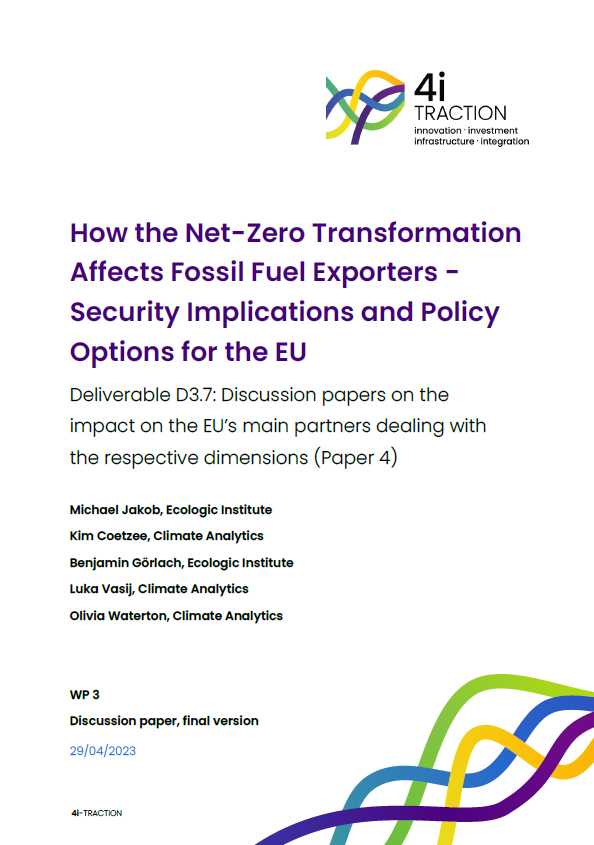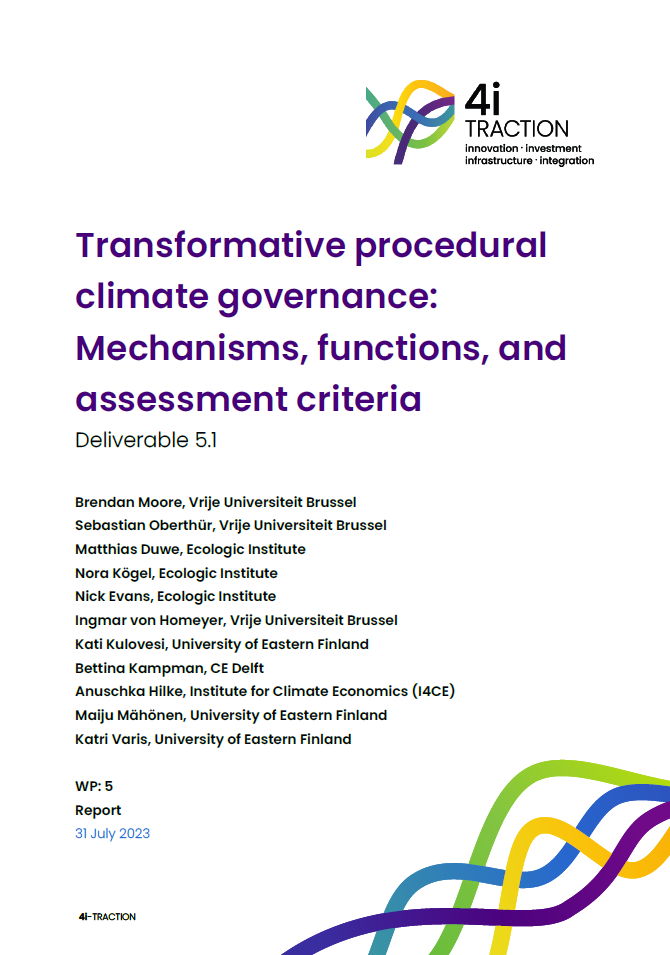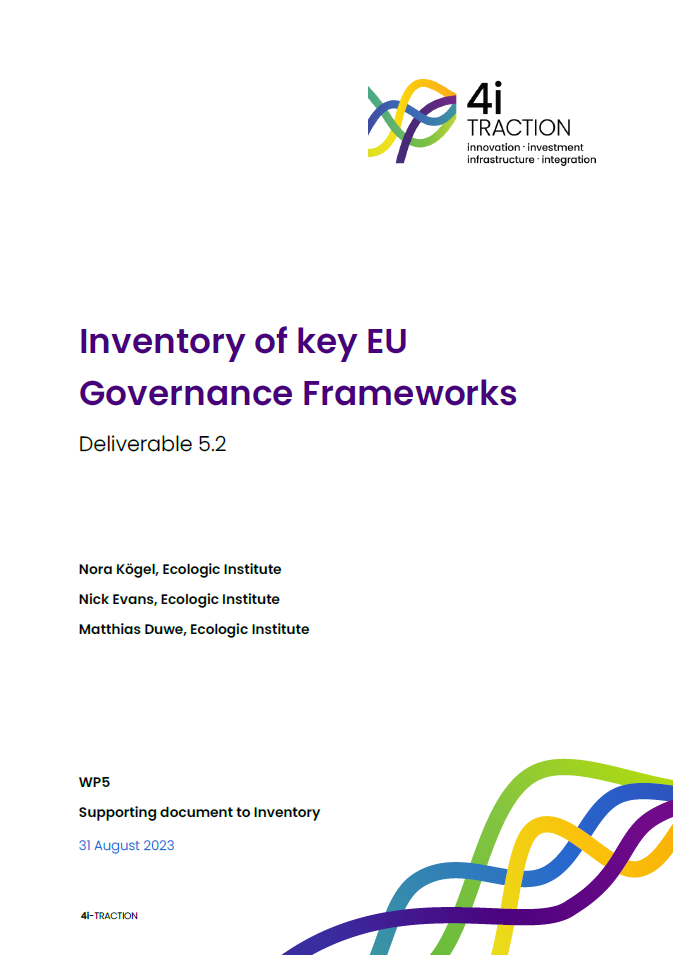Publication:Infographic
Related content for project "Transformative Policies for a Climate-neutral European Union (4i-TRACTION)" (project ID 33007)
Publication:Policy Brief
Towards Transformative EU Climate Policy
Ten Recommendations from the 4i-TRACTION Project
Year
Read morePublication:Report
Towards Transformative EU Climate Policy
Ten Recommendations from the 4i-TRACTION Project
Year
Read morePublication:Podcast
What Next? Advancing Towards Climate Neutrality in a Challenging Political Environment
Sixth episode of the podcast "CLIMATE ON AIR – Discussing the future of EU climate policy"
Year
Read moreEvent:Conference
Managing the Transition to Net Zero: EU climate policy in a global context
4i-TRACTION x NDC Aspects Joint Conference
-
Brussels,
Belgium
Publication:Podcast
Integrating for Impact: Coordination and Cohesion in EU Climate Policy
Fifth episode of the podcast "CLIMATE ON AIR – Discussing the future of EU climate policy"
Year
Read morePublication:Report
Fostering Transformative Climate Governance? The potential of multilevel climate and energy dialogues
A criteria-based assessment of Member States reports under Article 11
Year
Read moreEvent:Digital Event
Publication:Podcast
Regulatory Leverage: How Can the EU Foster a Green Investment Shift?
Fourth episode of the podcast "CLIMATE ON AIR – Discussing the future of EU climate policy"
Year
Read moreEvent:Conference
Innovative Policies for the Path to Climate Neutrality – COP Side Event
Dubai,
United Arab Emirates
Publication:Report
Publication:Document
How the Net-Zero Transformation Affects Fossil Fuel Exporters
Security Implications and Policy Options for the EU
Year
Read morePublication:Report
Transformative Procedural Climate Governance
Mechanisms, functions, and assessment criteria
Year
Read morePublication:Report
